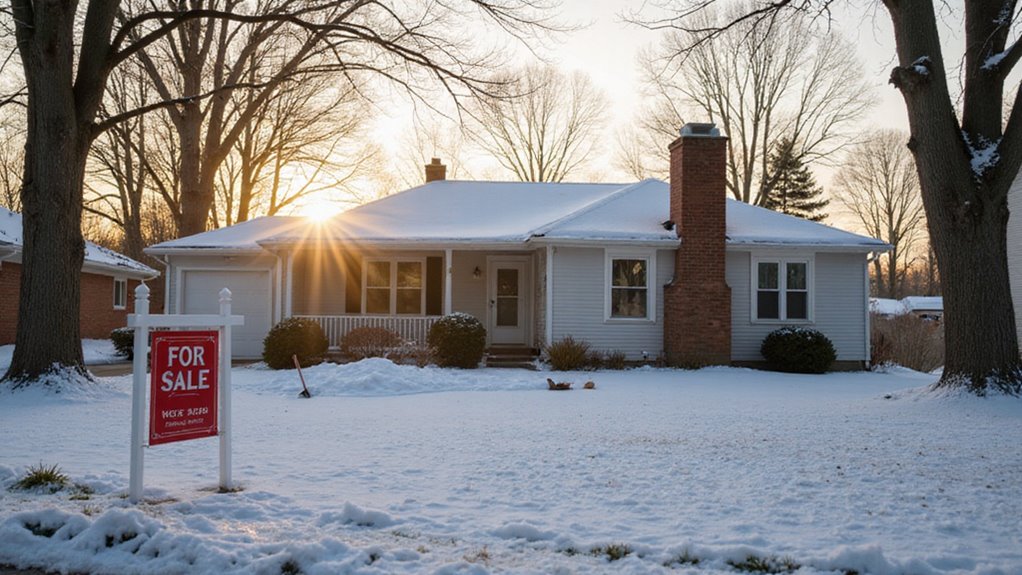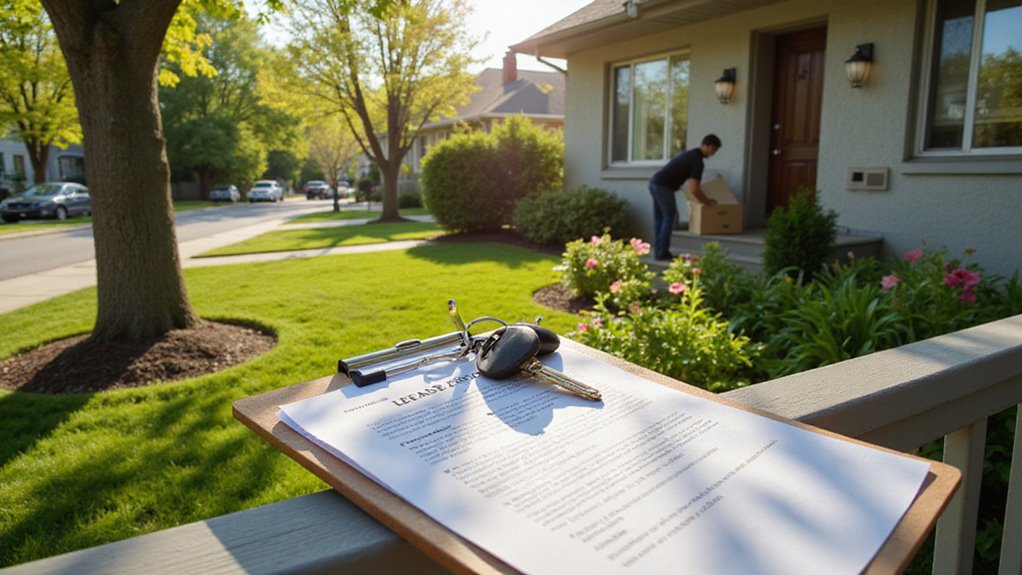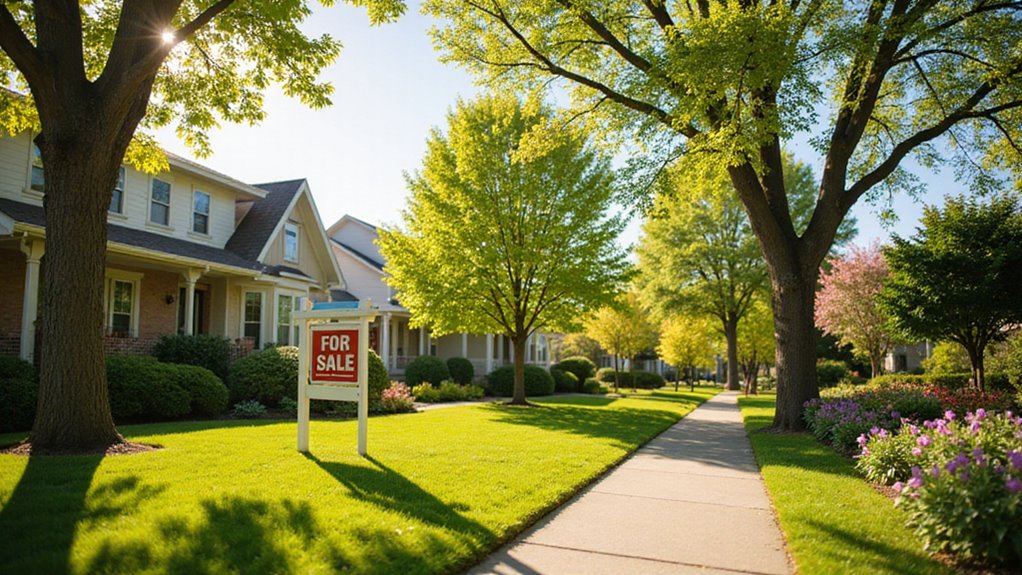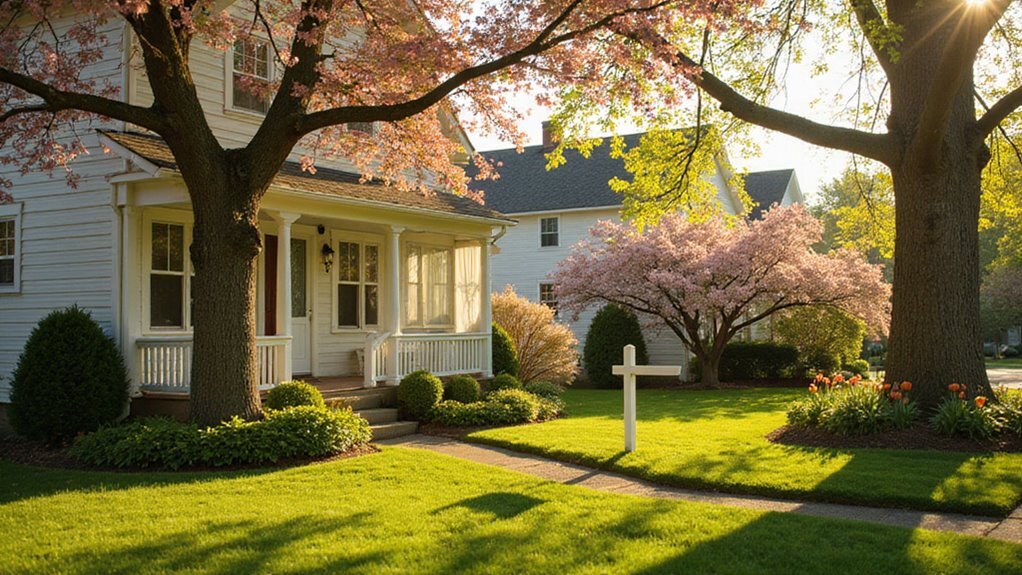Choosing the right time to sell your rental property is a big decision. Selling at the wrong moment can lead to lower offers and longer vacancies. Many owners worry about missing out on the highest profits.
Trying to predict the market can feel overwhelming. Prices and demand change with the seasons, and every month brings new challenges. Uncertainty can make you hesitate and lose money.
The best time of year to sell a rental property is usually late spring or early summer. Buyer demand is highest, and competition drives prices up. Planning your sale around this window can help you get the best results. This blog will guide you through the timing process and help you make the most of your investment.
Key Takeaways
- Spring and early summer attract the most buyers, leading to faster sales and higher offers for rental properties.
- Aligning the sale with tenant lease end dates minimizes vacancy and appeals to move-in-ready buyers.
- Fall offers less competition and motivated buyers, providing a strategic window for selling rental properties.
- Selling after owning for one year qualifies for lower long-term capital gains taxes, increasing net profit.
- Local market trends, inventory levels, and seasonal buyer activity should guide the final timing decision.
Understanding Seasonal Market Trends

List your rental property during high-demand times to get the best profit. Market trends show that prices and demand change each season. Choose peak months to attract more buyers and better offers. If you list when leases often end, you can avoid long vacancies. This helps keep your rental income steady. Local data can show you when similar homes sell quickly and for more money.
School schedules, holidays, and weather also affect buyer interest. If you align your listing with these factors, you can increase your chances of a higher sale. Always review recent sales and trends before making a decision. It’s also wise to consider your local market dynamics since factors like regional climate, buyer motivation, and competition can influence the ideal selling season for your property. Additionally, conducting a thorough property lien search before listing can ensure transparency and prevent unwanted surprises during the selling process.
The Impact of Spring on Property Sales
When you list your rental property in spring, you’ll benefit from a surge in buyer activity—historically, the season sees up to 34% more home sales compared to winter months. Powerful curb appeal during this time can help your property stand out and attract stronger offers. With favorable market trends aligning in spring, you position yourself for a faster sale and potentially higher returns.
Sellers may also appreciate the streamlined process that is common with quick-closing buyers during this busy season, as it can reduce administrative hassle and speed up the transaction. To maximize your results, make sure you avoid asking for too much money, as overpricing can significantly delay the sale even in a hot market.
Increased Buyer Activity
Spring brings more buyers into the housing market. Reports show home sales rise from March to June each year. Sellers often see faster and more frequent offers during this time.
If you list your rental in spring, you may get more attention. High demand can let you price your property above recent sales. You could also receive several offers, giving you stronger negotiation power.
If market activity is high, you can sell faster and for a better price. Spring sales may help you avoid long waiting periods. Choosing this time increases your chances of success.
Enhanced Curb Appeal
Spring naturally improves your home’s curb appeal. Bright flowers, fresh grass, and tidy walkways make your property look welcoming. These features help attract more buyers to your listing.
Landscaping often gives the highest return on investment. The National Association of Realtors says good landscaping can raise your home’s value by up to 15%. If you want a strong first impression, fresh exterior paint is also important.
If you invest in these updates before selling, your property can stand out in a busy market. Buyers notice homes that look well cared for. If you want more offers and a faster sale, focus on these seasonal changes in spring.
Favorable Market Trends
Spring is usually the best time to sell a rental property. More buyers look for homes, leading to faster and better sales. If you list in spring, your property will likely get more attention and higher offers.
The National Association of Realtors reports that sales and transactions rise during this season. Higher demand means your property faces less competition. This can help you sell quickly and at a good price.
If economic conditions improve, such as job growth and strong consumer confidence, buyers become more active. Limited inventory in spring also benefits sellers. If you act during these trends, you can maximize your return on investment.
Summer Selling Advantages and Challenges
In summer, you’ll see buyer activity peak, with national housing data showing transaction volumes often surging by 10-15%. Elevated curb appeal from lush landscaping can help you command stronger offers, but you’ll need to strategically manage tenant turnover, which typically rises with the end of school terms.
Additionally, be aware that local real estate trends can significantly impact both the level of buyer demand and the competitiveness of offers you might receive during this season. Weigh these factors to optimize both timing and return on your rental property sale. Be sure to factor in real estate commission as one of the most substantial closing costs you’ll incur when selling during this busy season.
Increased Buyer Activity
Summer brings more buyers into the real estate market. Home sales usually peak from May to August, according to the National Association of Realtors. This increase in buyers leads to higher demand for homes.
Motivated buyers often have personal reasons, such as school schedules or job changes. If you list your rental property during this time, you may get more attention. Competition for homes becomes stronger, making it easier to sell quickly.
More buyers can mean shorter time on the market. Sellers might receive multiple offers if demand is high. Serious buyers are more likely to act fast during the summer months.
Enhanced Curb Appeal
Summer is the best time to improve your home’s exterior. Landscaping changes stand out more because of the longer days and bright sunlight. If you upgrade your yard, your home may look more valuable to buyers.
Fresh grass, colorful flowers, and trimmed bushes can increase your property’s value by up to 12%. Good exterior lighting also makes your house look more inviting at night. Lighting can draw attention to special features and help with evening tours.
If you want to impress buyers, keep up with regular yard work and repairs. Hot weather can make problems like dry grass or dying plants more obvious. If you keep your yard healthy, your home will look its best all summer.
Tenant Turnover Timing
Most leases end in late spring or summer, which matches common tenant turnover. Selling your rental property during these months is usually easier. Buyers often prefer to take ownership when there are no tenants mid-lease.
If you sell in summer, you may find more tenants looking to move. Tenant screening can be easier with more applicants. Lease renewals go down as tenants often decide to relocate during this time.
However, you may face higher competition from other sellers. Tenants might request more showings or flexibility. If your sale takes longer, you could have a vacancy.
You may need to screen tenants quickly if you want to fill a short-term gap. Decisions about lease renewals become urgent as tenants consider moving. If you plan carefully, you can reduce these challenges.
Why Fall Can Be a Strategic Selling Season
Fall can be a smart time to sell a rental property. Buyers who missed spring and summer are still looking. These buyers are often serious and ready to act. Many families return from vacations in the fall. They may want to move before the year ends. If you list your property now, it may attract their attention.
Competition is lower in the fall. Your property could stand out more to buyers. This can help you get better offers. For sellers who want to avoid lengthy processes, working with cash home purchasers can lead to a quick and hassle-free transaction during the fall season.
Staging with simple autumn decorations can also help. Buyers may picture themselves celebrating holidays in the home. If you use seasonal marketing, you may sell faster.
Additionally, fall is an ideal time to highlight your property’s unique features to attract both traditional and cash buyers.
Winter Considerations for Rental Property Sales

Selling a rental property in winter means fewer buyers are looking, but there are also fewer listings for sale. If you list now, you may face less competition. Data shows winter sales make up only 7-9% of yearly transactions, so buyers are often serious.
Investors seeking vacation or short-term rentals may be interested, especially in tourist destinations. Some buyers also look for off-season deals or need quick moves for jobs. Highlighting unique advantages can attract these buyers. If your property has unique features, consider having it appraised to help determine the right listing price.
Sellers should show the property’s income potential, especially for short-term rentals. A warm and inviting stage can help buyers picture themselves there. Fast and clear communication will keep buyers interested.
If you emphasize the low competition, buyers may act quickly. Sharing rental performance data builds trust and shows the property’s value. Acting on these points can help you get the best result during winter.
It’s also important to understand short-term vs. long-term capital gains when selling an inherited rental property, as this can affect the taxes owed after the sale.
Tax Implications of Selling Rental Properties
When you sell a rental property, you’ll face capital gains tax on your profits and depreciation recapture on any deductions you’ve claimed. These two tax factors can significantly impact your net proceeds, so it’s crucial to understand how each applies to your situation. Planning your sale with these rules in mind helps you maximize your after-tax returns.
Obtaining title insurance can protect you from unexpected legal or financial issues, such as undisclosed liens or boundary disputes, that may arise during the sale process. Before listing your property, it’s wise to obtain a detailed title report and review it thoroughly to proactively identify and address any potential issues that could affect the sale process.
Capital Gains Tax Considerations
After selling your rental property, you will keep the sale amount minus taxes and costs. Capital gains tax will lower your profit. It is important to know how this tax works before selling.
Capital gains are the profit from selling your property after subtracting its adjusted basis. Short-term gains are taxed at higher rates than long-term gains. Your tax rate also depends on your total annual income.
If you sell during a year with lower income, you might pay less tax. Offsetting gains with losses can reduce your tax bill. Some sellers may qualify for tax exclusions or deferrals.
Careful planning can help you keep more money from the sale. If you need guidance, you should consult a tax professional. This ensures you make the best decisions for your situation.
Depreciation Recapture Rules
Depreciation recapture rules require you to pay tax on the depreciation you claimed when you sell a rental property. The IRS usually taxes this at a rate of 25%. You must account for this tax even if you focus more on capital gains.
If you increased your rental income or improved the property, your sale price may be higher. A higher sale price can increase your depreciation recapture tax bill. Sellers are often surprised by this extra cost.
You should calculate your adjusted basis early if you want to reduce taxes. Consulting a tax advisor before listing your property can help you plan better. If you time your sale near the end of the year, you may have more flexibility for tax planning.
Navigating Lease Agreements and Tenant Occupancy

Lease agreements set the rules for selling a rental property with tenants. You should always check the lease terms before listing. This helps you plan your sale and avoid surprises.
Look at when the lease ends and if there are early exit options. If the lease allows, you can ask tenants for flexible showing times. Good communication with tenants can make showings easier. Before proceeding, make sure you have clear title to the property, as this is essential for a smooth transaction.
If there are several tenants, screen them well to ensure reliable payments. Reliable tenants make your property more appealing to buyers. Tenant payment history can also build buyer confidence.
Explain your plans to sell the property clearly to tenants. If you keep tenants informed, you can reduce confusion or disagreements. This approach helps the sale go smoothly for everyone involved.
If you need to sell quickly, working with a cash buyer could be ideal, since the process often allows for a faster closing and less disruption to tenants.
Evaluating Local Market Conditions
To evaluate local market conditions, look at recent sales, current inventory, and rental demand. These factors show if the market favors buyers or sellers. Use this information to set your price.
Compare prices of similar homes sold in the past six months. Check the price per square foot and days on market. High prices and quick sales mean strong demand.
If inventory is low and demand is high, you can price your property higher. If many homes are for sale or demand drops, consider a lower price. Competitive pricing helps sell faster in a slow market.
Rental trends also matter, especially for investors. Strong rental demand can make your property more appealing. Always use current data to guide your decisions.
It’s also wise to consider how economic indicators like interest rates and job growth can influence buyer demand and property values in your area.
Financial Planning Before Selling

Financial planning is important before selling your rental property. It helps you avoid surprises and get the most money possible. You should start by getting a professional market valuation to set a fair price.
Next, check your mortgage balance to see how much you still owe. If you sell, calculate what you will actually get after paying off the loan. Consider possible capital gains taxes, as these can affect your final profit.
If you have tenants, plan how to handle their leases. You might need to end leases or offer buyouts. This step helps prevent problems during the sale.
Review all operating expenses and check for repairs or maintenance you have not done yet. Buyers may ask you to fix issues or lower the price. Fixing problems early can make your property more attractive.
Always talk to a tax advisor before selling. A tax expert can help you find the best way to handle taxes. This can save you money and avoid mistakes.
Assessing Property Appreciation and Depreciation
Tracking your rental property’s value helps you decide when to sell. If you monitor appreciation or depreciation, you can plan better. Compare your purchase price to the current value using sales data or a professional appraisal.
Review year-over-year price changes in your neighborhood for trends. Market shifts, demand, or the economy can quickly affect values. If you see prices dropping, check if the neighborhood or competition is the cause.
A data-based approach helps you know if your property has gained or lost value. If your asset has appreciated, selling now may bring a profit. If it has depreciated, consider waiting or improving the property before selling.
Timing the Sale for Capital Gains Benefits

Selling your rental after one year lets you use long-term capital gains rates. These rates are usually lower than short-term rates. This can help you keep more profit from your sale.
If the neighborhood market is rising, you may get a better price. Recent sales in your area can help you pick the right time. High demand often means higher offers from buyers.
Luxury renovations can make your property more valuable. You should list your property when buyers can see these updates. This can help you get a higher sale price.
If your yearly income is high, your tax rate on gains may also increase. Selling in a lower-income year could save you money. Always check your tax situation before deciding to sell.
Local market cycles affect sale prices. If you sell during peak demand, you may get the best return. Careful timing can make a big difference in your profit.
Preparing Your Rental for the Market
To attract top-dollar offers, you need to prioritize enhancing curb appeal and addressing any outstanding maintenance issues. Studies show that well-maintained properties sell up to 10% faster and for higher prices. By investing strategically in these areas, you position your rental to stand out in a competitive market.
Enhancing Curb Appeal
Improving curb appeal helps you sell your rental property faster and for more money. If the outside looks good, buyers are more interested. Simple upgrades can make a big difference in value.
Trim bushes, plant seasonal flowers, and add fresh mulch to your yard. Clean walkways, siding, and driveways with a power washer. If you update the front door, choose a bold color or new hardware.
Add new house numbers and outdoor lights for style and safety. Keep the lawn mowed and the edges neat. If you focus on low-maintenance changes, you can get the best return on your investment.
Addressing Maintenance Issues
Addressing maintenance issues is key to passing inspections and getting a better price for your property. Buyers prefer homes that are in good repair. Well-kept homes also sell faster and attract more offers.
Landlords must fix any outstanding repairs before selling. Major systems like HVAC, roofing, and plumbing should be checked first. If these are in good shape, buyers feel more confident.
Document all repairs and keep the receipts. If buyers ask for proof, you can show them the records. This helps build trust and can reduce price negotiations.
If you handle repairs before listing, you avoid surprises during inspections. This can make the selling process smoother. It may also help you get a higher sale price.
Working With Real Estate Professionals
Many sellers work with real estate agents because agents help properties rent or sell faster and for more money. Agents know the market and can handle many complex details. If you want better results, a professional’s expertise can make a difference.
A real estate agent studies local rental prices to set the best listing price. Agents use this data to attract serious buyers or renters. If you want to reach more people, an agent’s network is helpful.
Agents are skilled in negotiation and protect your interests in contracts. They also manage communication with tenants to avoid legal issues. If you need help with showings or maintenance, agents can connect you with trusted property managers.
Maximizing Your Sale Price With Strategic Timing
You can get the best price for your rental property by choosing the right time to sell. Check local sales data, inventory, and seasonal trends. Late spring and early summer often bring higher prices because more buyers are looking.
Good financial records and clear tenant screening can help your property stand out. If your lease ends during peak season, list it as move-in ready. This can attract both investors and buyers looking for a home.
Watch mortgage rates and local job growth, as these affect how many buyers are in the market. If rates are low and jobs are growing, demand will likely be higher. Careful timing and solid property management can help you sell for more.
Conclusion
If you want to get the best value for your rental property, timing is important. Listing in spring or early summer usually attracts more buyers. If you miss this window, you may face lower demand and reduced offers.
If you need a quick and hassle-free sale, we buy houses for cash all year round. Working with professionals can help you avoid stress and save time. Greg Buys Houses offers a fast solution if the traditional market is not right for you.
If you are ready to sell or just want to explore your options, we are here to help. Contact Greg Buys Houses today for a fair cash offer. Let us make your selling process smooth and simple.

